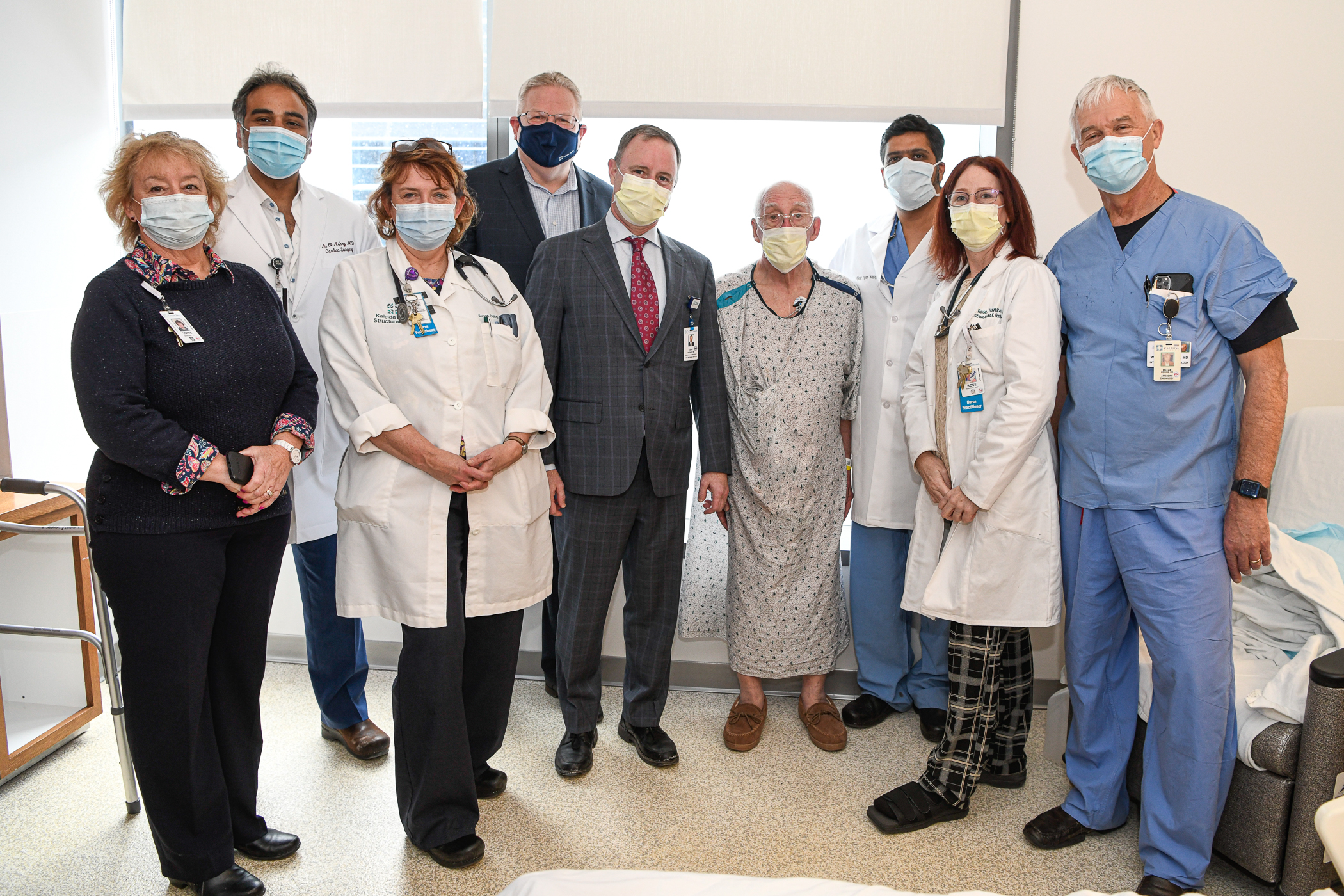2000th TAVR Procedure Saves Lives Proving Experience Matters
By Annette Pinder
Several years ago, my mother-in-law, who lived in Pennsylvania, underwent a minimally invasive surgical procedure called transcatheter aortic valve replacement (TAVR). She had been suffering from heart failure and was so short of breath she could barely walk across a small living room. What she didn’t realize when she first explored getting minimally invasive TAVR surgery is that experience matters. So, instead of seeking help from the surgeons in Philadelphia who had the most experience with the procedure, she chose one close to her home who had very little experience with TAVR. To make a long story short, her surgeon inserted the valve incorrectly, which led to her death.
All of the physicians I have spoken with since my mother-in-law’s death tell me that experience matters. The structural heart team at Kaleida Health’s Gates Vascular Institute (GVI), directed by Vijay Iyer, MD, PhD, has that experience and then some. The team recently completed their 2,000th TAVR procedure, a minimally invasive procedure that is replacing open heart surgery and reducing recovery times, mortality risk, and restoring lives of individuals living with heart valve disease.
Jim Gillen, Dr. Iyer’s 2000th patient to receive the TAVR procedure, says, “I feel like a new man.” Despite being 94 years old, Jim is active, enjoys life, and still lives on his own. He is a retired land surveyor, and World War II U.S. Navy Air Corps veteran. Recently, after experiencing shortness of breath, low blood pressure, and severe lethargy, Jim went to the emergency room close to his home before being transferred to GVI. On February 18, Gillen became Gates Vascular Institute’s 2,000th patient to undergo the TAVR procedure.
Dr. Iyer explains how he attached a new valve to a catheter and guided it to Jim’s heart through his femoral artery (a large artery in the thigh and the main arterial supply to the thigh and leg). Yes, through his thigh – and that in itself is pretty amazing! Dr. Iyer placed the new valve inside the diseased valve, which opened like an umbrella, pushing aside the old valve and providing a new, clear pathway for Jim’s blood to flow.
What is even more amazing is that patients like Jim typically recover in the hospital for 24 hours, instead of the lengthy stay typically required following open-heart surgery. Additionally, the risk of complications as a result of the procedure are low, and the valve has been proven to be highly durable over time.
“I feel so fortunate to have this world class hospital and team within reach. Dr. Iyer and his team saved my life and have given me the most wonderful gift of all — time to enjoy the rest of my life with my family,” said Jim.
Recent NYS Department of Health data reveals that GVI leads the way in performing more TAVR procedures with the highest success and lowest mortality rates than any other hospital in the region. And while TAVR has evolved since the procedure was first used, the saying, “experience matters” is truer than ever.
To learn more about TAVR and Gates Vascular Institute’s top ranked cardiovascular care, see tinyurl.com/pjhvmk8v, call 716-859-2401, or email StructuralHeartCenter@kaleidahealth.org. The team is currently enrolling patients in several clinical trials for aortic, tricuspid and mitral valve diseases.












